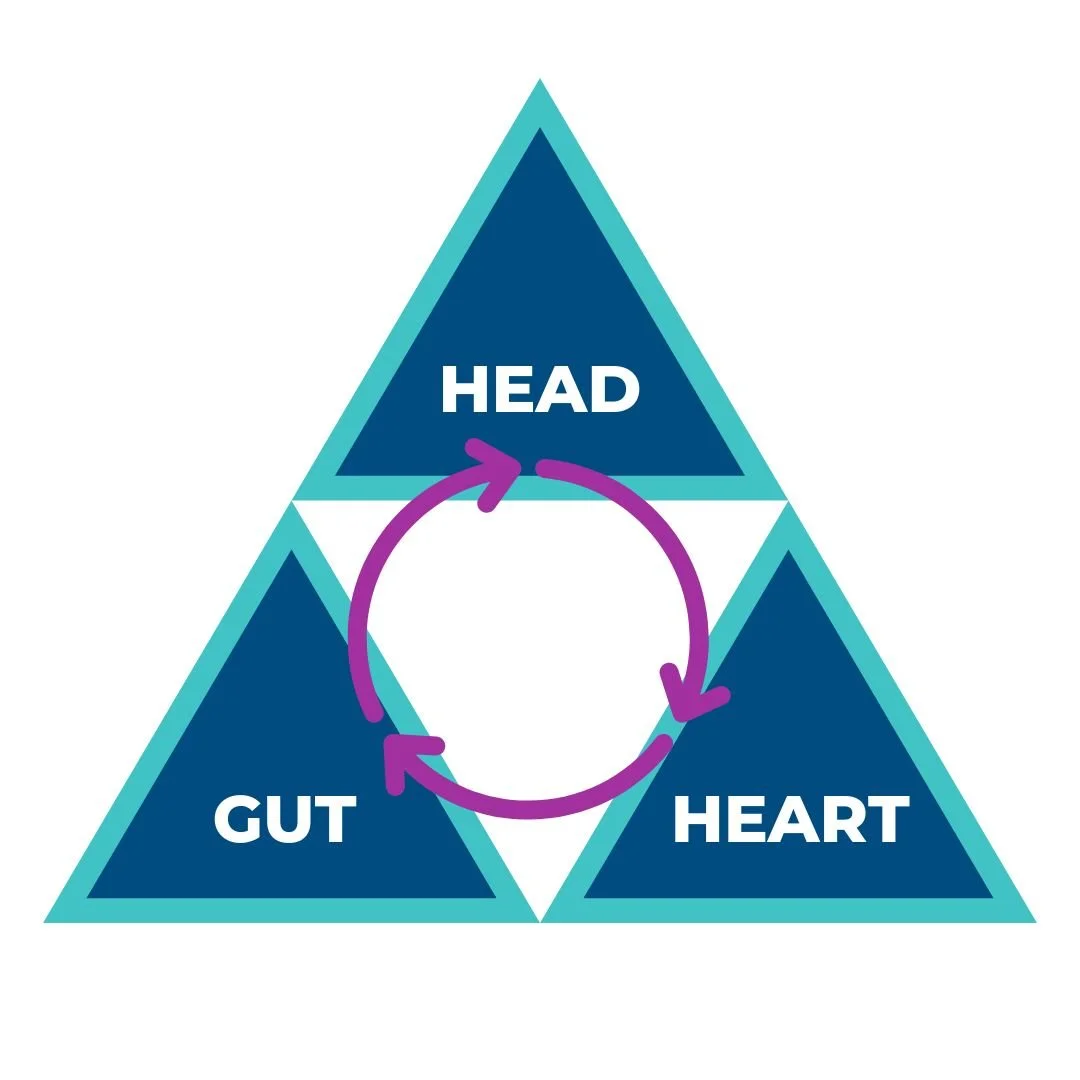Empathy Might Be the Most Underrated Leadership Skill in Your Arsenal
As a leader, you're constantly navigating complex challenges, from strategic decisions to fostering team performance. In this demanding landscape, you might wonder what truly sets exceptional leaders apart. Is it raw intelligence? Unwavering decisiveness? While these are certainly important, I’d argue that empathy is the trait that will truly unlock your full potential.
I'm Jenn Masse, an ICF Certified Mindful Leadership Coach and the founder of Conshy Coaching. My journey to becoming a full-time coach, after a decade in the corporate world, was fueled by a desire to empower others. I experienced firsthand the “empty” feeling of chasing a preconceived notion of success, and It wasn’t until I hit a breaking point (ugly, snotty tears in my boss’s office kind-of-breaking-point) that I realized something had to change. I wanted to help people. I wanted to lead. But not in the way I’d been taught.
That realization set me on a new path. And since 2018, I’ve had the privilege of coaching leaders across industries who are ready to lead with purpose, intention, and yes, with empathy.
What is Empathy in Leadership, Really?
When I talk about empathy with my clients, I often lean on Dr. Brené Brown's definition: "connecting to the emotions that underpin an experience." It’s not about having walked in someone's exact shoes, but about connecting with the underlying emotions – fear, frustration, excitement – that arise from their experience.
Why is this crucial for leaders today? Because it's the foundation for:
Building deeper relationships: When your team feels understood, trust flourishes.
Understanding needs and motivations: Allowing you to tailor your support and leverage individual strengths.
Creating a positive work environment: An empathetic culture fosters psychological safety and collaboration.
Empathetic leadership isn't just about feeling good or building trust; it's about driving tangible results like improved communication, innovation, engagement, retention, and better work-life balance.
Empathy vs. Sympathy: Why the Distinction Matters
It's vital to differentiate between empathy and sympathy. As Brené Brown succinctly puts it, "Empathy fuels connection. Sympathy drives disconnection."
Empathy is about understanding and extending compassion to help someone navigate their situation. It's recognizing an employee's struggle with workload (“It’s understandable you’re feeling overwhelmed given…”) and sitting down to collaboratively find solutions.
Sympathy is an "arms-length transaction." It's feeling sorry for someone ("I’m sorry you’re feeling overwhelmed") but not actively engaging to help them feel seen or heard.
As a leader, your goal is to connect and empower, not just commiserate.
5 Ways Empathy Will Transform Your Leadership
Cultivating emotional intelligence and empathy has a profound impact. It's the cornerstone of a thriving team and a resilient organization. In June of 2024, I had the privilege of being interviewed by Cynthia Corsetti of Authority Magazine about Empathy.
In that interview, I shared these five ways that empathy will affect your leadership:
1. Reduce Stress and Prevent Burnout
The modern workplace is a hotbed of stress: constantly shifting priorities, the pressure to do more with less, and a general feeling of not being seen or heard. The American Institute of Stress reports that 83% of US workers suffer from work-related stress.
Empathetic leaders combat this by:
Becoming active listeners.
Recognizing signs of stress and burnout before they become chronic.
Streamlining communication.
Collaborating with employees to create supportive solutions that meet deadlines without excessive stress.
By understanding the "human" element of workload and pressure, you can proactively create a healthier, more sustainable work environment.
2. Drive Innovation and Collaboration
When your team feels genuinely seen and heard, they're more likely to contribute their best ideas and collaborate effectively. Empathy fosters a psychologically safe environment where diverse perspectives are welcomed, and trust flourishes.
3. Improve Conflict Management
Conflict is inevitable, but how you navigate it determines its impact. Heightened emotional intelligence and active listening, both byproducts of empathy, equip you to better understand the various perspectives and emotions at play in a conflict.
An empathetic leader can acknowledge and validate the situation, align everyone to a common goal, and guide the conversation towards a win-win resolution. You're not just solving a problem; you're strengthening relationships in the process.
4. Boost Job Satisfaction, Performance, and Loyalty
A recent Dayforce study revealed that less than half of employees worldwide feel their organization empathizes with them. If you're an empathetic leader, you're already ahead of the curve. This study also highlighted that employees believe empathetic leaders lead to:
Improved job satisfaction (52%)
Improved job performance (39%)
Increased productivity (37%)
Improved mental health and decreased burnout (48%)
Increased loyalty (41%)
Simply put, when people feel understood and supported, they're happier, more effective, and more committed to their organization.
5. Position Your Organization for Future Success
We're at a tipping point. The relentless demand for "more with less," coupled with information overload and constant change, leads to chronic stress, burnout, and disengagement. Organizations need innovative solutions.
Empathetic leaders are uniquely positioned to identify these solutions. They are the ones truly listening and understanding the systemic challenges their teams face, and embracing the human side of leadership. By tuning into the pulse of your workforce, you can proactively address underlying issues and empower your team to navigate our new reality more effectively.
Striking the Balance: Empathy and Accountability
While empathy is a superpower, it's essential to use it wisely.
A common pitfall is allowing empathy to come at the expense of accountability. Remember, empathy doesn't mean avoiding tough decisions because your team won’t like them. It means:
Recognizing and speaking to tough emotions.
Standing firm in a necessary decision.
Holding space and supporting your team as they navigate the situation.
Acknowledging and validating the experience and emotions of others.
It's about empathizing with the fact that a situation "sucks," but still moving forward with what's best for the organization. This is where Holographic Thinking comes in handy – it empowers leaders to make grounded decisions that balance logic, emotions, and intuition, making communication much clearer.
Another potential challenge is emotional exhaustion if empathy isn't coupled with boundaries. Being attuned to others' emotions doesn’t mean absorbing them. As a coach, I engage in many emotionally charged conversations daily. It’s a skill to sit with clients, provide support, and then shake off the "icky energy" to be fully present for the next. Cultivating strong emotional intelligence and boundaries allows you to tap into emotions, help others feel seen, and then disengage without taking on their burden.
Ready to Start Leading With Empathy?
The ripple effect of empathetic leadership is truly magical. When you invest in yourself and embrace a new way of leading, your team, your organization, and even your personal life will feel the positive impact.
If you're ready to challenge old ways, embrace the human side of leadership, and empower your teams for high-end results, I invite you to schedule a complimentary exploration call with me. Let's unlock your full potential together.



